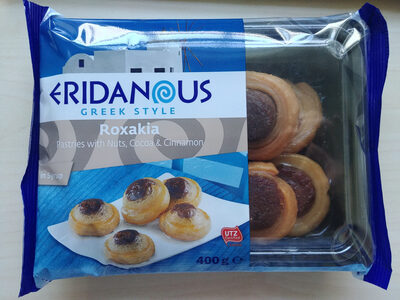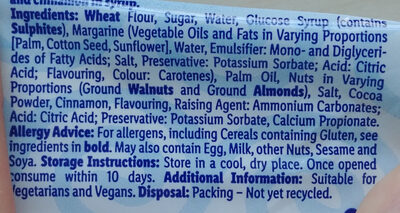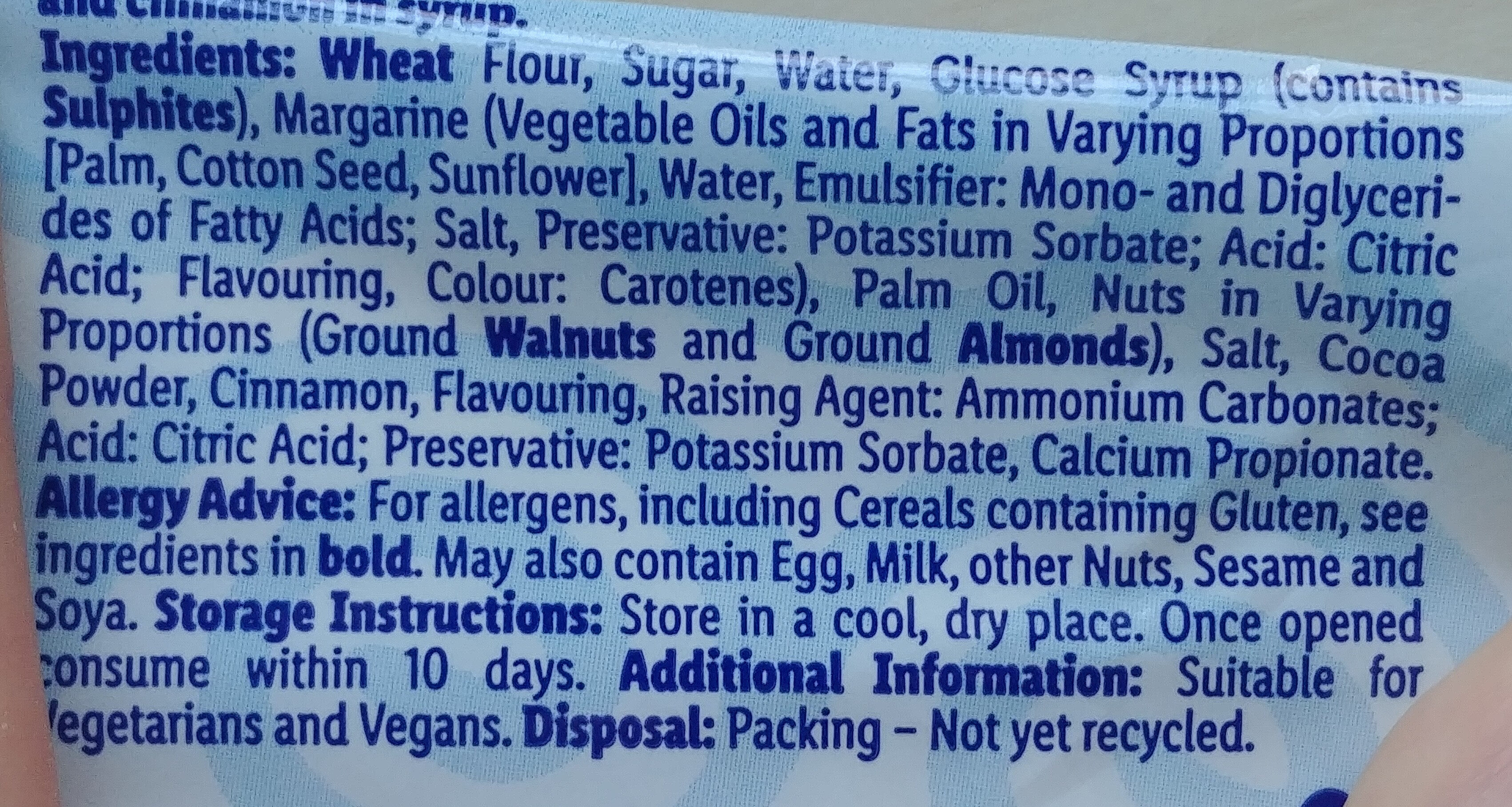Roxakia - Eridanous - 400 g
Ambiguous barcode: This product has a Restricted Circulation Number barcode for products within a company. This means that different producers and stores can use the same barcode for different products.
×
This product page is not complete. You can help to complete it by editing it and adding more data from the photos we have, or by taking more photos using the app for Android or iPhone/iPad. Thank you!
×
Barcode: 20244729
Quantity: 400 g
Packaging: Plastic, Pet-polyethylene-terephthalate, Pp-polypropylene
Categories: Snacks, Sweet snacks, Biscuits and cakes, Pastries
Labels, certifications, awards:
Vegetarian, Sustainable farming, Vegan, UTZ Certified, UTZ Certified Cocoa
Manufacturing or processing places: Greece
Stores: Lidl
Countries where sold: Germany, United Kingdom
Matching with your preferences
Environment
Packaging
Transportation
Threatened species
Labels
Report a problem
Data sources
Product added on by kiliweb
Last edit of product page on by packbot.
Product page also edited by magikarp99, openfoodfacts-contributors, yuka.sY2b0xO6T85zoF3NwEKvlhB8At7h-BHYChPvmBCx5NGNLITkWuhUvtTgE6o.











